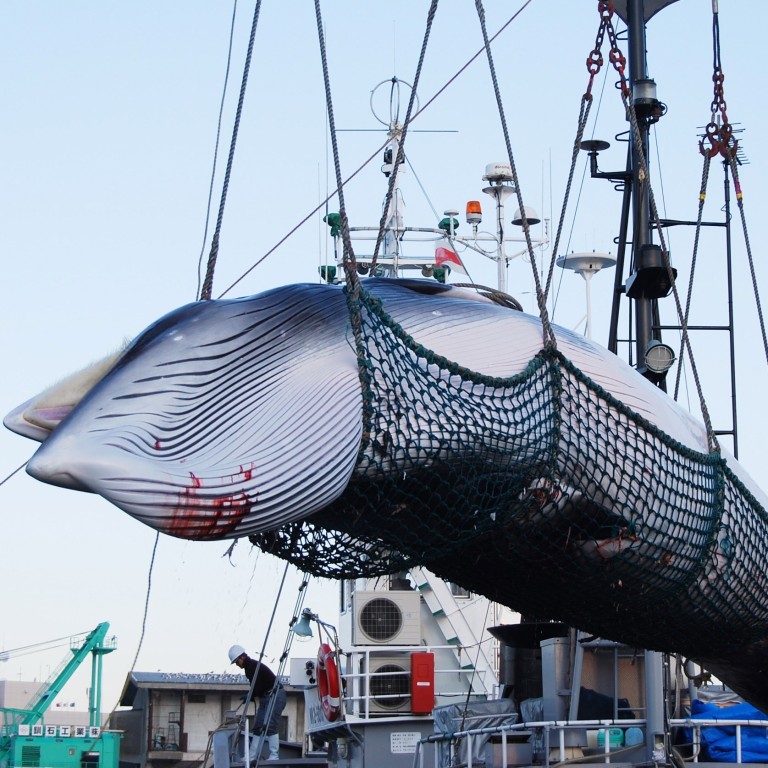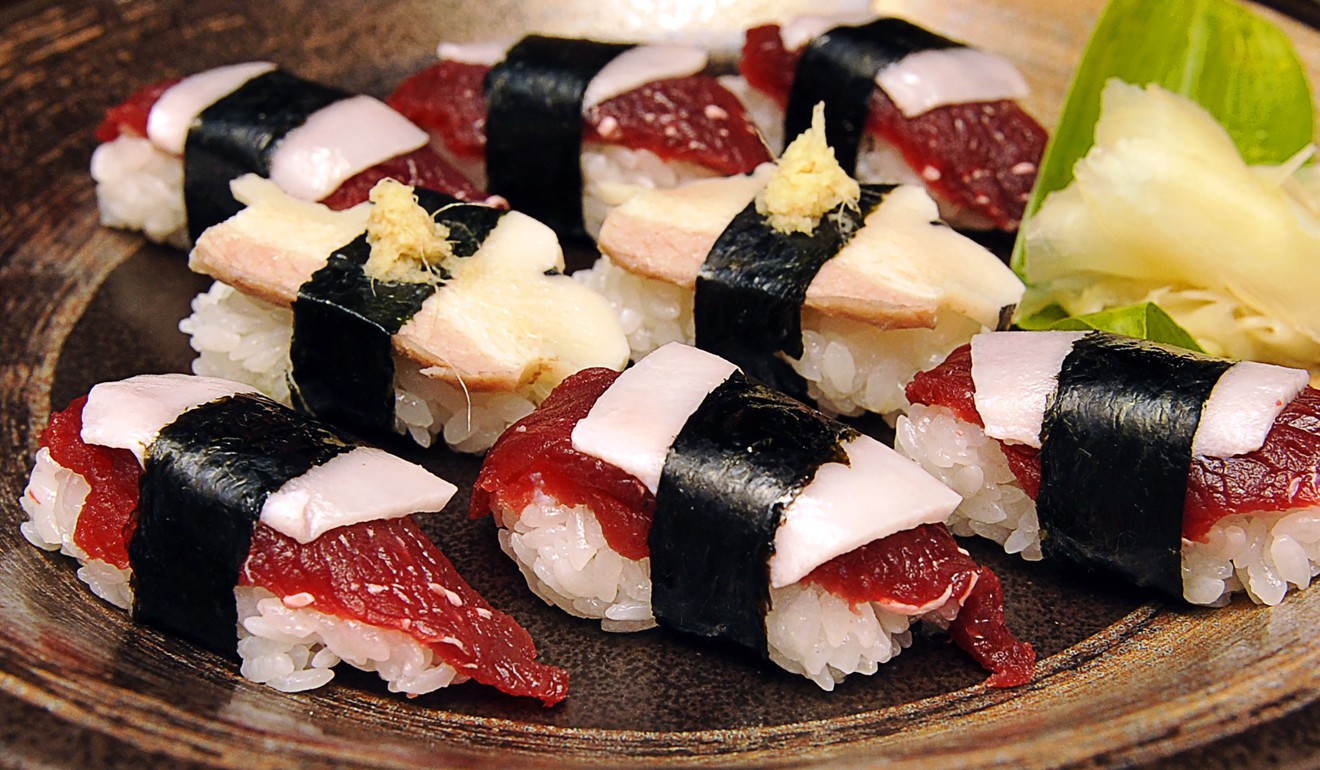
How Japan’s return to commercial whaling could actually kill the industry and save whales
- Jeff Kingston says Japan’s defiance of an international ban on commercial whaling could yield positive results. Tokyo can raise a nationalist banner over its exit from the agreement, but also pull the plug on a heavily subsidised industry
Whale meat consumption as a culinary pillar and talismanic symbol of Japanese identity is an invented tradition. Whale was traditionally eaten in coastal whaling communities, but it was only in the post-war era that the meat became a major source of protein and a dish on the school menu.
Although there is a certain degree of nostalgia among Japan’s ageing baby boomers for whale, hardly any Japanese eat the meat nowadays, even at heavily subsidised prices.
According to government data, the country ate more than 233,000 tons of whale meat in 1962, but only 3,000 tons in 2016. In a 2014 Asahi survey, 4 per cent of respondents said they occasionally eat the meat, and 10 per cent said they had it on rare occasions.
In my local market, whale typically sells for far less than tuna, but even so the government holds several thousand tons of whale meat in cold storage at significant expense.
In desperation, whale has been sold as treats for dogs in Japan, and included again on school lunch menus. However, unsafe levels of mercury have been found in whale products in Japan.
It is inadvisable for pregnant women to eat toxic whale, so it is hard to imagine mothers being happy to learn their children are being fed it in school. How is this sound public health policy?
Whaling has also been Japan’s diplomatic scarlet letter, damaging the nation’s international standing while alienating some of its closest allies. No other single government policy generates such international opprobrium and it is puzzling why the government harpoons its own green credentials over a marginal issue that most Japanese have long stopped caring about.
The battle over whaling has grown more acrimonious since the beginning of the 21st century, principally because Japan has become a more insistent advocate of commercial whaling.
This has been banned since 1986, when Japan and other members of the International Whaling Commission agreed to a moratorium because many whale species were on the brink of extinction from overhunting.
However, the international agreement allowed Japan to continue hunting whales in the Antarctic for scientific research.
Japan’s whaling diplomacy has been battered by allegations that it was buying votes in the International Whaling Commission via aid programmes.
Curiously, landlocked Mali, Laos and Mongolia are members of the commission for reasons that are not obvious, and they vote with Japan. Will they also withdraw from the commission, now that Japan is not footing the bills?

However, the notion of Japan as victim, always caving in to international demands in the interests of maintaining harmony, resonates among some Japanese. Few Japanese are ardently pro-whaling, but some of the more exasperated are anti anti-whaling.
The government-subsidised Institute of Cetacean Research produces little research on whales but orchestrates a media campaign to promote whaling as part of Japanese identity.
Effectively, Japanese taxpayers have been paying for this boondoggle: subsidising research that draws international condemnation, supporting a research institute that is studying not much, subsidising meat that most people don’t want.
So it is possible that Japan’s exit from the International Whaling Commission may yield some dividends, saving money while salving national pride. Those long hunts in the Antarctic are costly and that ageing whaling fleet requires significant investment to sustain.
By limiting whaling to its own waters, the government can slash funding for a programme few support anywhere. There will no longer be any need to buy votes in the International Whaling Commission, and the government can pull the plug on the Institute of Cetacean Research, which is no longer needed to cover up commercial whaling.
Will it, though? Probably not. The institute provides sinecures for retiring Fishery Agency officials and they are already losing budget and turf.
If whaling operations are really left to market forces, however, they are likely to shrink. At the same time, the government can claim the nationalist high ground following its action against the “bullies” of the International Whaling Commission.
Thus, it is possible to imagine a positive scenario where Japanese whaling will be scaled down, taxpayers’ money will not be squandered, and Japan will no longer be cast as the Voldemort of the oceans.
But will Abe really unleash market forces on this touchstone of national identity? Alas, nationalist grandstanding seldom yields sensible outcomes.
Jeff Kingston is director of Asian Studies at Temple University Japan

